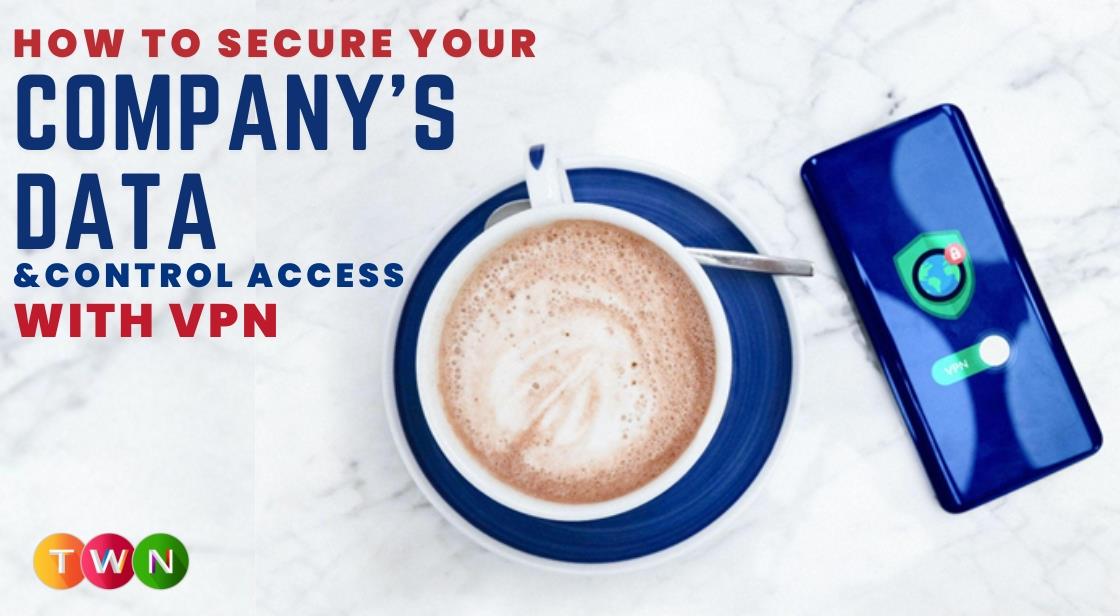How to Secure Your Company's Data and Control Access with VPN

Blog Post
Discover the power of using a Virtual Private Network (VPN) to secure your company's data and control access. By creating a secure connection over the Internet and employing encryption technology, a VPN allows you to access the web as if you were on a private network.
This is particularly valuable for safeguarding corporate data and managing data access effectively. Learn how encryption works in a VPN and how it protects your data from interception.
Explore the benefits of using a reliable VPN service provider like VeePN, which offers high security with its 256-bit protocol and even provides a free trial version. Additionally, understand how a VPN aids in access control by creating virtual networks and allowing users to connect only after logging into the corresponding VPN.
Proper access management is crucial for protecting confidential information and preventing data breaches. Setting up a VPN for your business involves configuring your router and installing VPN clients on each device to ensure secure connections.
With a VPN in place, your business data remains protected, access is controlled, and remote workers can securely connect to company resources. Invest in a reliable VPN solution to ensure the security of your information while maintaining operational efficiency.
Looking for a way to secure the company's data? Consider a virtual private network (VPN). By creating a secure connection over unsecured Internet infrastructure and using encryption technology, a VPN allows you to access the Internet as though you were connected to a private network.
This can be particularly useful for protecting corporate data and controlling data access to that data. Whether you're concerned about access control or other forms of identity and access management (IAM), a VPN is a smart way to keep your resources hidden and your information safe.
How to Secure Your Company's Data and Control Access with VPN
How does a VPN protect data?
Encryption is a technique that jumbles data so that only authorized parties can comprehend it. It transforms readable data into an unpredictable format that makes it unintelligible to attackers or anyone else who intercepts it. This is comparable to a "secret code".
VPNs encrypted connections between devices, usually employ through the IPsec or SSL/TLS encryption protocols. All connected devices establish encryption keys that are used to encode and decode the transmitted information. Though this can cause a slight delay in network connections, it secures network traffic.
Encrypting VPN connections ensures privacy even when transmitted over the public Internet. For example, when Alice works from home and accesses a company database 100 miles away via VPN, her data travels through a third-party internet exchange point (IXP). If a criminal intercepts the data at the IXP, it remains secure due to the encryption provided by the VPN. The criminal can only see the encrypted version of the data.
Whether you can protect your business with VPN depends on the quality of the VPN itself. You need a reliable service provider, for example in the form of a VPN extension or smartphone app. Secure information with VPN becomes complete if the 256-bit protocol is used.
It is almost impossible to decrypt it without knowing the access key. One of the VPNs using this protocol is VeePN. Moreover, they have a free trial version for testing the quality of the service.
If you are looking for a free VPN then check out VeePN. With it, you can enjoy not only security but also high bandwidth, and easy unblocking of sites.
How does a VPN help provide access control?
Let's imagine that the office has Server A and Server B are the two servers available and Ethernet cables are used for network access as WiFi isn't used. Server A is connected via cables and routers to a network including desktop computers and the office printer. If you're not physically connected to Server A's network, you won't be able to connect with it.
The same goes for Server B. If Bob wants to print a document from Server A via the office printer, he must connect his desktop computer to the correct network first. Similarly, to access a document from Server B, he must connect to that network.
VPNs create a virtual network instead of a physical one, making it impossible for a computer to access resources without connecting to the VPN first. Access control is a common reason for companies to use VPNs, as they can set up different VPNs to connect to various internal resources and assign users to each VPN to control access levels. If Bob wanted to connect to Server A or B at Acme Co., he would need to log in to the corresponding VPN first.
Secure and proper management of access is of utmost importance to safeguard valuable corporate data. The absence of access control leaves confidential information vulnerable to being tampered with or accessed by unauthorized individuals, leading to severe data breaches.
Also Read: 5 Ways of Paying Attention to Customers Marketing Edition
How to set up a VPN for your business?
If you want to keep your business data secure and boost connectivity, setting up a VPN is the way to go. To get started, you'll need a router that supports PPTP or L2TP technology protocols.
Refer to your router's manual for instructions on how to configure it properly. Keep in mind that your internet service provider may require permission. Consider seeking assistance from IT support professionals to ensure optimal efficiency and security.
Once your hardware is set up, install special VPN clients on each device you plan on using with your business networks - such as laptops, tablets, and smartphones. Be certain that each device is properly configured with encryption to guarantee secure connections.
One use case is access unlocking. Do you know how to get unbanned from Omegle without much difficulty? Just switch to using a VPN and you will be able to chat with strangers again.
Conclusion
A Virtual Private Network (VPN) is a powerful tool to protect your business's data and give you full control over access. It ensures the right people have the right access in the right places without having to worry about security breaches or unauthorized access.
Not only can VPNs help protect your company's data, but they also make it easier for remote workers to securely and remotely connect to your company’s resources. They keep your business safe from cyber threats while streamlining operations across locations and departments.
Ultimately, investing in a reliable VPN solution is an excellent way to guarantee that information remains secure while maintaining efficiency within your organization.
You May Like
EDITOR’S CHOICE












